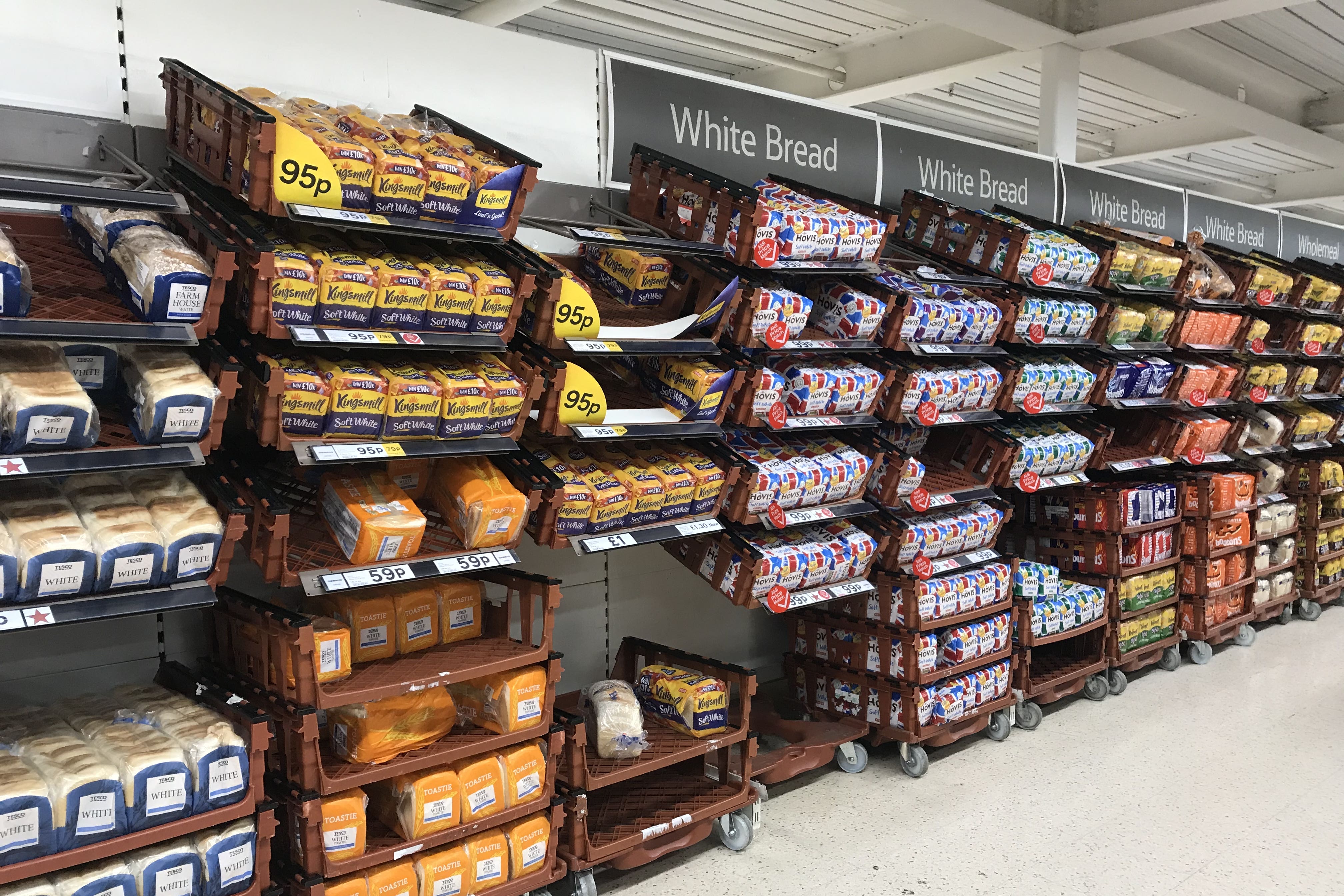Blaming supermarkets for high food prices? Good politics but unfair
An analysis of the numbers makes it hard to pin charges of ‘greedflation’ on supermarkets, writes James Moore


Profiteering supermarkets: it is absolute rubbish to oppose an investigation,” declared the Liberal Democrats in a furious press release. They were responding to the British Retail Consortium’s Andrew Opie. When Sir Ed Davey’s claim of supermarkets “unfairly” using inflation as cover to feather their own nests – what has been termed “greedflation” – was put to him on the BBC’s Today programme, Opie described it as “absolute rubbish”. That’s telling ’em!
So who’s right? Well if you look at the most recent figures from the two biggest stockmarket-listed supermarkets – that would be Tesco and Sainsbury’s – you’ll see some big numbers. Tesco made £1bn in its most recent financial year on £66bn of sales. Sainsbury’s chipped in with £690m of profits from £35bn sales.
Those are big numbers for sure. But consider that Tesco’s profits halved and Sainsbury’s represented a sharp decline. That puts the figures in a different light. We should also consider the margins. Tesco gives us what it calls an “adjusted operating margin”, which is not a number I love because of the “adjusted” part. Adjusted how?
Still, at 3.8 per cent it was considerably lower than the previous year’s 4.4 per cent. Tesco explained that this was a function of a change in its business mix. The previous year it sold more non-food items, which carry a higher margin than food – on which margins are slim. Again, this refutes Sir Ed’s point.
Sainsbury’s is easier to deal with. Its “retail operating margin” fell from 3.4 per cent to 2.99 per cent. This was, it said, because of its “investment” in prices. But, but, but, should we believe them? Well, the numbers companies put in their results are governed by fairly strict regulations. When a quarter-of-a-billion-pound hole was found in Tesco’s accounts, it plunged the group into the worst crisis in a century and led to a hefty penalty. So there’s that.
The headline numbers tell you that while these businesses are decently profitable, and they’ve both taken steps to keep their shareholders sweet, it’s very hard to accuse them of profiteering. Just £1bn on £66bn on sales? Imagine the reaction of, say, Apple’s stockholders if it reported numbers like that.
If you want to see where the money’s really being made in food, it’s more instructive to look at, say, a Unilever. The consumer goods giant, which makes Marmite among other things, reported that its “underlying operating margin” in the first half of its reporting year would be “at least 16 per cent”.
“We continue to expect a modest improvement in underlying operating margin in the full year, with another year of increased investment,” the group said.
You may recall that Marmite started to disappear from Tesco’s shelves a few years ago after its former CEO David Lewis, an alumnus of Unilever, baulked at the price rises his old shop was seeking to force through. It also affected PG Tips, Ben & Jerry’s and what have you.
Perhaps his successor Ken Murphy might like to consider a similar move? It would certainly help to distract from the fuss about his £4.5m pay package, which emerged at the end of the week. There’s no cost of living crisis in the Murphy household. He’s one of the diminishing band of people who could still afford to choose Marmite in favour of the much cheaper Tesco Yeast Extract, were he so inclined.
Shoppers are increasingly inclined to take the hint. They’ve been switching to cheaper own-label brands in large numbers. All the same, the purveyors of branded goods wouldn’t be a bad place for the likes of Sir Ed to turn their guns.
However, the row, which Opie poured petrol and lit a match on with his interview, is good politics. The cost of living crisis is hitting people hard. Sir Ed highlighting it, and banging the drum for an investigation that he knows is unlikely to be granted, telling people he’s feeling it too and is on their side.
Of course, Tesco, Sainsbury’s and the rest have nothing to fear from a probe (other than it wasting management time and the cost of a battery of lawyers). They operate in a highly competitive industry and there are many more numbers than the ones I’ve dug out that will prove it.
A more productive use of everybody’s time might be to consider wider issues of food security, which the current rampant inflation has rather served to highlight. There has been a timely intervention on that subject from Shore Capital’s Clive Black, who lambasted what he described as “abject policy failure” from the Department for the Environment, Food and Rural Affairs.
Black highlighted problems with eggs, pork and the mothballing of the UK greenhouses, which could have grown some of the vegetables that were in short supply recently except for, obviously, energy costs. We’re only one bad harvest away from being in the same place and maybe an even worse place.
While blaming the supermarkets might be good politics, good for the news cycle and a producer of good soundbites, it is also bad policy, something Sir Ed might like to think about given how often we’ve seen the C word mentioned recently. That would be C for coalition.






Join our commenting forum
Join thought-provoking conversations, follow other Independent readers and see their replies
Comments